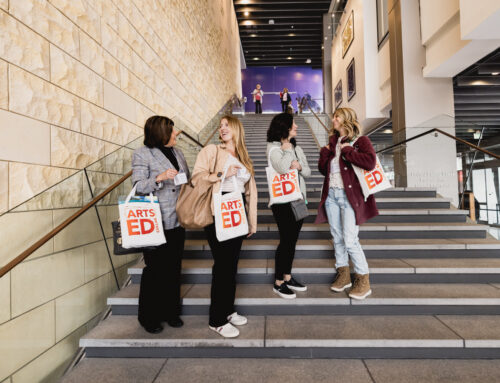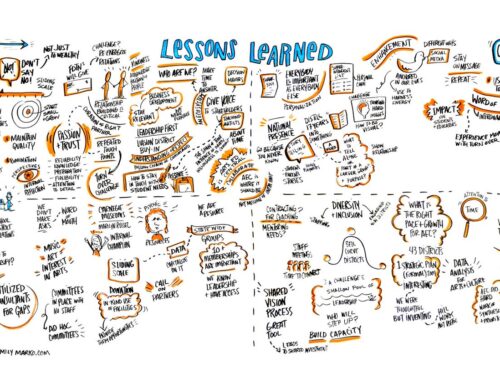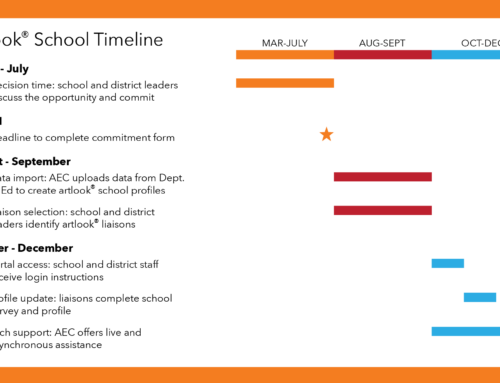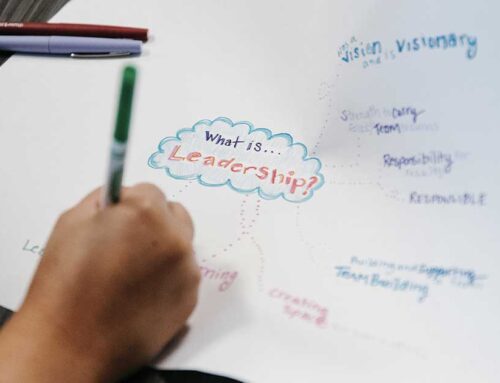 The Value of Evaluation
The Value of Evaluation
Evaluation is about posing thoughtful questions, systematically searching for evidence, actively pursuing deeper understandings, and routinely reflecting on practice.
In 2012, Arts Education Collaborative decided to add a full-time program evaluator to its staff. In an organization with just five people, devoting a position entirely to program evaluation represents a huge investment of resources. It also reflects a deep belief in the value of listening, questioning, and reflecting on our work.
Unfortunately, for some people the word evaluation triggers a lot of negative associations. They may just think of an evaluator as someone who drops in at the end of the project to tell them everything they’re doing wrong! But the field of evaluation has evolved, and evaluators no longer act simply as judges who assess a program’s merit or worth. Evaluators now work together as partners with program staff throughout every stage of development to help them realize their vision and achieve their goals. Evaluators can play multiple roles, serving as consultants, facilitators, critical friends, and—perhaps most significantly for AEC—as educators.
Professional learning is at the core of AEC’s work, including evaluation. When we partner with schools, community organizations, and cultural institutions to evaluate their arts programs, our goal is to help educators reflect on their practice, identify what’s working and where improvements might be made, and explore new ways to create more engaging and effective learning experiences for everyone they currently serve or hope to serve in the future.
We facilitate collaborative group planning sessions among program stakeholders, for example, to promote dialogue and foster shared understandings from the start about the purposes of their program and its intended outcomes. Conducting studies that clarify participants’ needs, interests, challenges, and circumstances early in the design process can help our partners identify productive directions to explore as they move forward. Periodically checking in with participants about how well everything is working during the experience provides useful information about where improvements can be made. Finally, partnerships in which we systematically investigate impacts on participants’ attitudes, understandings, and actions aim to support long-term organizational learning, help staff see programs from participants’ points of view, inform decisions regarding future programs, and report to funders and other supporters about program outcomes.
At AEC, evaluation is equally important to our own learning around the programs we offer educators. AEC’s programs are designed with multiple opportunities for staff to gather feedback from participants, allowing us to continually adapt the learning experiences that we offer to meet participants’ needs and preferences. As we’ve built our evaluation capacities, we’ve begun to study more deeply how participants’ understandings and actions change across their engagement with AEC.
On a broader level, we strive to infuse our work with the particular ways of thinking and understanding the world that evaluation makes available to us. It’s about asking how we know what we think we know. It’s about being inquisitive and sometimes being a little bit skeptical. And, at its core, it’s about posing thoughtful questions, systematically searching for evidence, actively pursuing deeper understandings, and routinely reflecting on practice.
If you’re interested in learning more about how evaluation might be used to support professional learning around educational arts programs in your school district, community organization, or cultural institution, we hope you’ll contact us to explore the possibilities together.






